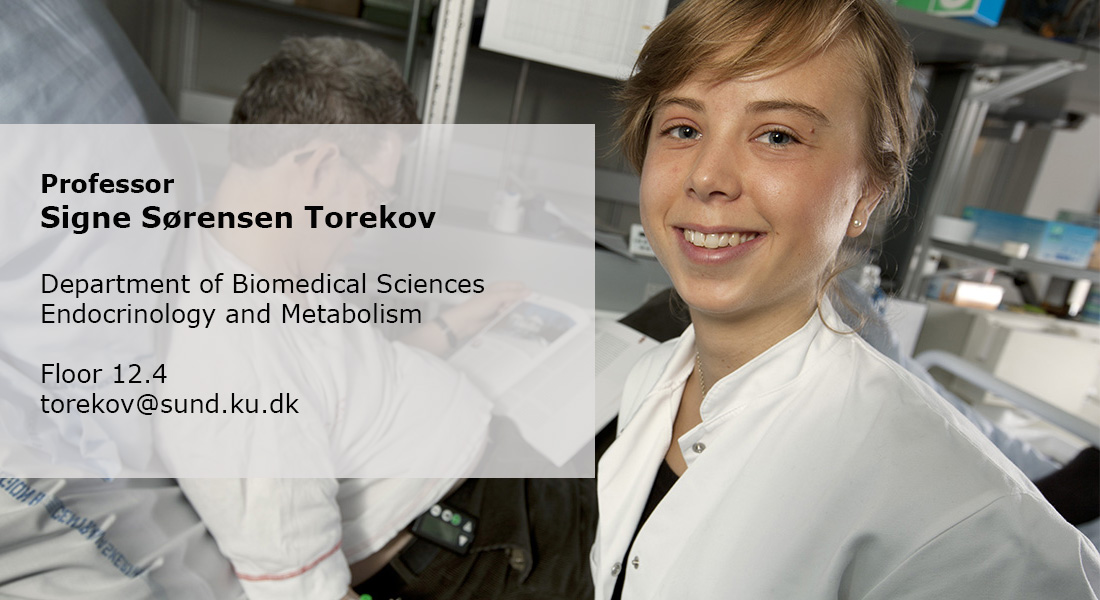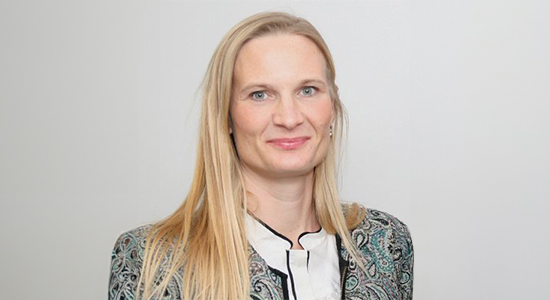Torekov Group - Clinical Translational Metabolism
The Clinical Translational Metabolism Group has the overall goal of creating evidence of how to obtain healthy weight throughout life. Our vision is to implement this evidence to prevent obesity-related disease and prevent onset of obesity already in childhood. In clinical experimental interventions, we characterize and integrate the complex psychological and biological mechanisms underlying obesity and weight loss in order to improve prevention and treatment of obesity.

The Clinical Translational Metabolism group is focused on characterizing and integrating the complex psychological and biological mechanisms that contribute to obesity and weight loss in order to develop better prevention and treatment strategies. We are working to translate basic metabolism research into clinically relevant evidence, and are collaborating with both basic scientists and clinicians.
Our group is using a range of clinical and experimental methods, including clinical trials, human samples, and large-scale studies, to investigate the psychological, behavioral, and metabolic mechanisms underlying obesity and weight loss in humans. We have extensive experience in the interdisciplinary field of healthy weight loss maintenance, including diet-induced weight loss, exercise programs, and obesity medication, and have published our findings in prestigious medical journals such as the New England Journal of Medicine, Nature Communications, Cell Metabolism, Circulation and Gastroenterology and more.
The group's principal investigators have led randomized controlled trials within obesity treatment and obesity cohorts, which integrate a variety of factors such as appetite regulation, gut hormones, diet, physical activity, and behavioral and social aspects. The aim is to investigate the implementation, prevention, mechanisms, and treatment of obesity from a multifactorial perspective, with the ultimate goal of developing effective prevention and treatment strategies for obesity.
Overall, the Clinical Translational Metabolism group is focused on advancing our understanding of obesity, weight loss and healthy weight throughout life by integrating psychological, behavioral, and metabolic factors in order to improve prevention and treatment strategies.
- Interdisciplinary healthy weight loss maintenance: diet-induced weight loss, exercise programs and obesity medication
- Randomized controlled trials
- Childhood obesity cohorts
- Integrating appetite regulation, diet, physical activity, behavioral and social aspects to investigate implementation, prevention, mechanisms and treatment of childhood-onset obesity
- Human lab facility, beds, examination rooms, dexa, fat biopsies, meal test, questionnaires, data handling etc.
Currently, the Clinical Translational Metabolism group is working within different research areas related to clinical obesity research:
Sustainable Health Improvements Following Obesity Treatment (SHIFT)
SHIFT is an cross-sectorial network connecting clinical experts in severe obesity treatment at the regions hospitals with researchers in obesity from the University of Copenhagen and the Technical University of Denmark (Chair Professor Signe Torekov, University of Copenhagen, and Vice-Chair Senior Physician Kirstine Nyvold Bojsen-Møller, Amager-Hvidovre Hospital). Our goal is to translate research into concrete measures that can enhance prevention and patient care for children, adolescents, and adults, as well as advance health practices and alleviate the burden of severe obesity for patients and society as a whole. Our long-term vision is to coordinate research and treatment for this complex and widespread condition, providing evidence-based, sustainable solutions for lasting healthy weight, long-term maintenance of health benefits, and improved quality of life. Through educational initiatives, contributions to new clinical guidelines, and decision support tools, SHIFT equips healthcare professionals with the necessary skills to manage severe obesity.
If you’d like more information about Clinical Academic Groups, you can find it here.
FutureShape Family – AI-Enhanced Family Interventions Paving the Way for Sustainable Childhood Well-being
Supported by a Distinguished Investigator grant, Professor Signe Torekov from the Department of Biomedical Sciences at University of Copenhagen will pioneer an innovative approach to prevent obesity in children. A study of 400 families dealing with obesity will consider how the weight and habits of parents affects their kids. Using AI to enhance physical activity levels, sleep and eating habits, the study hopes to change how we deal with childhood obesity. The ultimate goal is that healthier parents will lead to healthier children. The Distinguished Investigator grant is awarded as part of the Novo Nordisk Foundation’s Research Leader Programme, which aims to enable outstanding research while supporting the development of research leaders. See video about the study
The RESETTLE Study
At least 25% of adolescents with childhood-onset obesity are untreatable by lifestyle changes. This group of adolescents is very vulnerable as they have a high risk of developing morbid obesity, type 2 diabetes and cardiovascular disease already as young adults. Moreover, psychological consequences such as social isolation, anxiety, body-dissatisfaction and depression are commonly seen along with lower health-related quality-of life. Thus, there is an urgent need for early identification of risk factors and implementation of new treatment modalities in adolescents with childhood-onset obesity, who do not respond to structured lifestyle interventions.
Why they develop untreatable obesity is unknown and is not explained by socioeconomic factors or genetic variants. However, inappropriate eating behavior such as emotional and uncontrolled eating as well as increased reward responses to high-calorie food may be underlying factors behind childhood-onset obesity. Glucagon-like peptide-1 (GLP-1) is a hormone secreted from the gut upon food intake and promotes satiety. Due to the appetite inhibiting effects of GLP-1, agonists of the GLP-1 receptor (GLP-1 RAs) leads to weight loss of around 10-20 %, and the GLP-1 RA semaglutide is approved for long-term weight management as supplement to caloric restriction and increased physical activity in adults with a BMI above 30. Moreover, GLP-1 RA treatment may lower food cravings and reduce inappropriate eating behavior.
Thus, the primary objective is to evaluate the effect of supplementing caloric restriction and physical activity with appetite inhibition in form of the GLP-1 RA semaglutide 2.4 mg in order to achieve weight loss in otherwise treatment resistant young adults with childhood-onset obesity.
We hypothesize that GLP-1 RA supplement, as add on to caloric restriction and physical activity can facilitate weight loss and improve appetite dysfunctions and eating behavior in young adults with treatment-resistant childhood-onset obesity.
We will test this by investigating the effect of applying GLP-1 RA treatment on top of life style changes in young adults with early-onset treatment resistant obesity
Our overall goal is to provide evidence for a new intervention regimen, allowing the health care sector to help vulnerable adolescents with childhood-onset obesity by early identification and focused evidence-based therapy to improve health and quality of life.
The S-LiTE study
"S-LiTE" is an abbreviation for "Synergy effect of the appetite hormone GLP-1 (LiragluTide) and Exercise in maintenance of weight loss and health after a low calorie diet.
Obesity affects 1 billion people and impairs all aspects of health; therefore there is an acute need for better treatment strategies. Chronic inflammation is an established part of the pathogenesis of obesity. Glucagon-like-peptide-1 (GLP-1) reduces food intake. We have previously shown that: 1) obese people have low endogenous GLP-1 response; 2) weight loss induces a marked increase in GLP-1 response, and 3) treatment with GLP-1 analogues facilitates long term weight loss maintenance accompanied by substantial improvement in metabolic health, compared to diet-induced weight loss maintenance. Exercise seem to ensure a more healthy weight loss maintenance and immuno-metabolic profile compared to diet-induced weight loss alone, by influencing systemic and adipose tissue inflammatory pathways. Emerging evidence identify GLP-1 as a potentially important immuno-modulator. Thus, both exercise and GLP-1 analogue treatment seem to facilitate weight loss maintenance, improve metabolic health and reduce systemic inflammation. We therefore hypothesize that combined treatment with GLP-1 and exercise exerts positive synergistic effects on immuno-metabolic health. Following a diet-induced weight loss we will test the individual and combined effects of GLP-1 analogue and exercise treatment on immuno-metabolic health biomarkers, remission of metabolic syndrome and weight loss maintenance; enrichment of the microbiota and amelioration of the epigenetic signature of spermatozoa.
Thus the goal is to establish novel and interdisciplinary strategies to improve immuno-metabolic health and maintain weight loss. By applying state-of-the-art methods, we wish to identify new pathways and generate targets for sustainable and immuno-metabolic health-promoting weight loss strategies.
The primary outcome has been published in the New England Journal of Medicine, see link here.
Melanocortin-4 receptor mutations and GLP-1
Mutations in the melanocortin-4 receptor (MC4R) gene represent the most common monogenic cause of severe childhood obesity. The MC4R is expressed in the hypothalamus in the brain and is an important regulator of food intake, energy expenditure and glucose homeostasis. Glucagon-like peptide (GLP) -1 is an incretin hormone that potentiates glucose-stimulated insulin secretion and also acts as an appetite-inhibiting hormone affecting the appetite center in the hypothalamus.
The aim of this project is to explore if the MC4R is part of the appetite inhibiting effect of GLP-1 and to investigate the physiological role of GLP-1 concerning body weight and appetite regulation in MC4R mutation carriers. Our hypothesis is that GLP-1 acts independently of the MC4R in the hypothalamus, and analogues of GLP-1 thus may serve as a treatment option for these patients.
The primary outcome has been published in Cell Metabolism.
Glucose metabolism in patients with mutations in voltage-gated potassium channels (long QT patients)
Voltage gated-potassium channels are located in the heart but also in glucose-regulating organs such as the pancreas and the intestine.
Therefore, we investigate the glucose metabolism in patients with loss of function mutations in the Voltage-gated potassium channels (long QT syndrome patients).
Primary outcomes has been published in Circulation: Patients With Long-QT Syndrome Caused by Impaired hERG-Encoded Kv11.1 Potassium Channel Have Exaggerated Endocrine Pancreatic and Incretin Function Associated With Reactive Hypoglycemia | Circulation (ahajournals.org)
Member of the NNF TrlC consortium: Discovery and validation of novel targets for therapy, characterization and response to treatment in immuno-metabolic diseases
The programmes both combine the fields of immunology and metabolic research and bring together investigators from three institutions; University of Copenhagen, Denmark, University of Oxford, Great Britain, and the Karolinska Institute, Sweden
Example of outcomes published in JACC: Fat-Secreted Ceramides Regulate Vascular Redox State and Influence Outcomes in Patients With Cardiovascular Disease | Journal of the American College of Cardiology (jacc.org)
PRESTORK: Healthy Lifestyle Before and During Pregnancy to Prevent Childhood Obesity
The prevalence of childhood overweight and obesity has risen from 4% in 1975 to more than 18% in 2016. Little is known about adiposity of the infant, but it positively associates to the mother's BMI. Globally, the prevalence of overweight has tripled since 1975 and is now affecting one of three Danish women at the time of pregnancy. Maternal obesity before conception, an excessive increase in body weight during pregnancy and physical inactivity are some of the risk factors suspected of infant adiposity and childhood obesity. Lifestyle interventions during pregnancy have shown limited or no effect in the offspring. Therefore, renewed effort to improve the prevention of childhood obesity is warranted.
Methods and analysis: This is a randomized, parallel group, tailored, multifactorial lifestyle intervention trial in women (age 18 to 38 years) with overweight or obesity (BMI 27 to 42 kg/m2) seeking pregnancy. The women are randomized 1:1 to either the lifestyle or standard of care group. The lifestyle intervention is initiated prior to pregnancy. The lifestyle intervention is set off with a low-calorie diet for 8 weeks and throughout the intervention period (prior to and during pregnancy) participants follow an intervention containing exercise according to the World Health Organization guidelines, healthy diet and mentorship to maintain healthy weight before and during pregnancy. The primary outcome is the difference between groups in neonatal adiposity measured at birth. Finally, a child and family cohort will be established to follow the children throughout childhood for healthy weight development. The study will provide evidence of effects from pre-conception-initiated intervention and have the potential to improve health and quality of life for children.
The study is made in collaboration with Tina Vilsbøll and Louise Grunnet from Steno Diabetes Center Copenhagen.
 |
Sten Madsbad, Hvidovre Hospital, Section of Endocrinology |
 |
Charalambos Antoniades, Associate Professor of Cardiovascular Medicine, University of Oxford |
 |
Prof. Mikael Rydén, Överläkare, Karolinska Institutet |
 |
Prof. Dr. Matthias Mann, Department of Proteomics and Signal Transduction, Max-Planck Institute of Biochemistry |
 |
Prof. Jens Juul Holst, University of Copenhagen, Department of Biomedical Sciences |
 |
Prof. Bente Stallknecht, University of Copenhagen, Department of Biomedical Sciences |
 |
Ass. Prof. Jørgen Kanters, University of Copenhagen, Department of Biomedical Sciences |
 |
Prof. Thomas Jespersen, University of Copenhagen, Department of Biomedical Sciences |
 |
Prof. Torben Hansen, University of Copenhagen, Section for Metabolic Genetics |
 |
Ass. Prof. Romain Barrès, University of Copenhagen, Section for Integrative Physiology |
 |
Ass. Prof. Brice Emanuelli, University of Copenhagen, Section for Integrative Physiology |
 |
Ass. Prof. Jens-Christian Holm, Holbæk Hospital, Region Sjælland |
 |
Prof. Tina Vilsbøll, Steno Diabetes Center Copenhagen, Region Hovedstaden |
 |
Senior Scientist Louise Groth Grunnet, Steno Diabetes Center Copenhagen, Region Hovedstaden |
|
Lundbeck Foundation Assending Investigator Grant: “Disruption of the neurobiological body-weight defense system in chronic childhood-onset obesity" Novo Nordisk Foundation Novo Nordisk Foundation: “Healthy lifestyle before and during pregnancy to prevent childhood obesity - the PRE-STORK-trial" Excellence grant awarded to the project "Synergy effects of GLP-1 and exercise of immuno-metabolic health" |
|
Member of the NNF TrlC consortium: Discovery and validation of novel targets for therapy, characterization and response to treatment in immuno-metabolic diseases. Novo Nordisk: Investigator Sponsored Studies |
This diabetes course will give you the newest state of the art updates on diabetes research in the fields of clinical aspects of diabetes and regulation of insulin secretion, epidemiology of diabetes, heritability of diabetes, genetic aspects of diabetes, prevention of diabetes and insulin resistance, molecular insulin resistance, cellular aspects of diabetes, physiological regulation of blood glucose, type 1 diabetes and stem cell research in diabetes. Each section is covered by world leading professors in the specific areas.
In June 2017, Signe Sørensen Torekov was awarded the Anders Jahre Prize for young researchers based on her research in obesity and diabetes.
Anders Jahre's medical prizes reward excellent research in basic and clinical medicine. The prizes are awarded by the University in Oslo and are among the largest in medicine in the Nordic region.
Group Leader
Signe Sørensen Torekov
Professor
Phone +45 22 98 38 27
torekov@sund.ku.dk
Group members
| Name | Title | Phone | |
|---|---|---|---|
| Christensen, Bodil Just | Assistant Professor | +4535328200 | |
| Fiorenza, Matteo | Assistant Professor | ||
| Gjedsted, Mathias Hedegaard | Academic Research Staff | +4535325757 | |
| Holt, Joachim | PhD Fellow | ||
| Jensen, Simon Birk Kjær | Postdoc | +4535326220 | |
| Jensen, Emma | Research Assistant | ||
| Madsen, Lærke Bruun | PhD Fellow | +4535330724 | |
| Nielsen, Dorthe Baunbjerg | Biomedical Laboratory Scientist | +4535331110 | |
| Nielsen, Tue Leth | PhD Student | ||
| Sandsdal, Rasmus Michael | PhD Fellow | ||
| Seier, Søren Sonnenborg | Research Assistant | ||
| Torekov, Signe Sørensen | Professor | +4535327509 |

